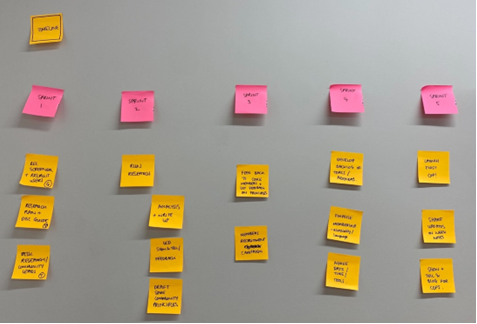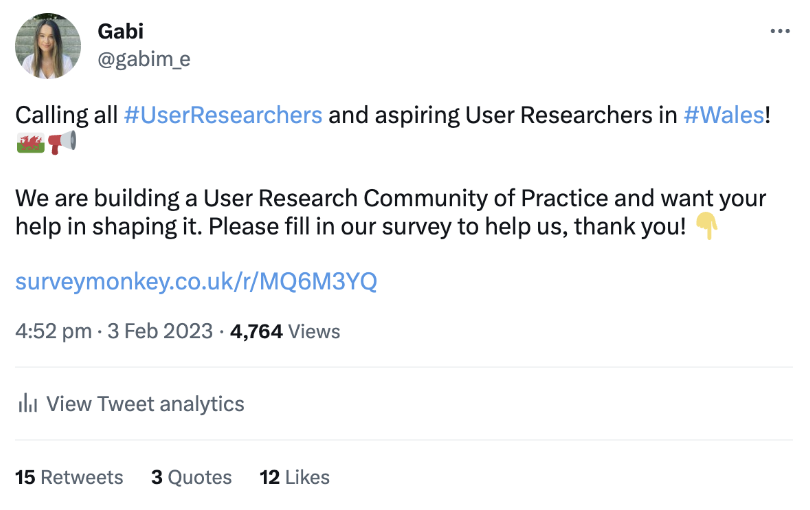Why a User Research Community for Wales
Our Head of User-centred Design set out three main objectives for our team last year. One is “People, Communities and Networks”. This priority is about bringing people together to learn, share, and improve the way we do user-centred design in the Welsh public sector.
User-centred design is still new in most parts of the Welsh public sector, so it’s important to start connecting people now, so they are supported in doing quality user-centred design from the start.
From experience, we knew that the value and benefits of user research were not well understood by leaders across Wales, and that there were few user researchers employed in the Welsh public sector.
A community of practice provides support to those working in a shared field to develop their skills and work through shared problems, typically within one organisation. Our mission at CDPS is to support people across Wales, so we took this a step further and decided a community was needed for the whole nation.
Desk research
We did desk research to learn about existing communities, how they work, and spoke to people who were already running successful communities.
Kick-off workshops
I read Emily Webber’s Building Successful Communities of Practice book, which reassured me that there was a set way to start a community. Using her recommendations for exercises, I started planning a workshop to answer these questions:
- What is our community’s purpose, or why is our community needed?
- What qualities should a vision have?
- What individual words describe our vision?
- What is our community vision statement?
We invited Welsh Government colleagues who had been running their own internal user research community, as well as CDPS colleagues. This worked well. I would recommend having a small initial kick off group with people who understand the context enough to make useful contributions. The workshop was very helpful and gave us the momentum and confidence to move forward.
I also had two new user researchers (Yana and Tom) join the team at this time, which meant we would be able to make progress towards our mission a lot more quickly and sustainably.
Finding out the user needs
After the workshop, we decided to start with a lean piece of discovery work to find out what our user needs were.
We broke the work down into sprints, where we undertook desk research, interviews, and a survey to help us understand who our members were, what they needed, and the existing community landscape.

Sprint planning for our discovery research
Finding people to interview
We didn’t initially know who our prospective members would be, so we used our CDPS social channels, our own personal social media networks and personal contacts to start spreading the word about our survey. We used this as a channel to recruit from, so that we could follow-up with interviews.
We held interviews with 6 participants and had 20 survey responses, from those in user researcher roles, and in non-user researcher roles.

Our social media message which helped us recruit participants for research and reach prospective members